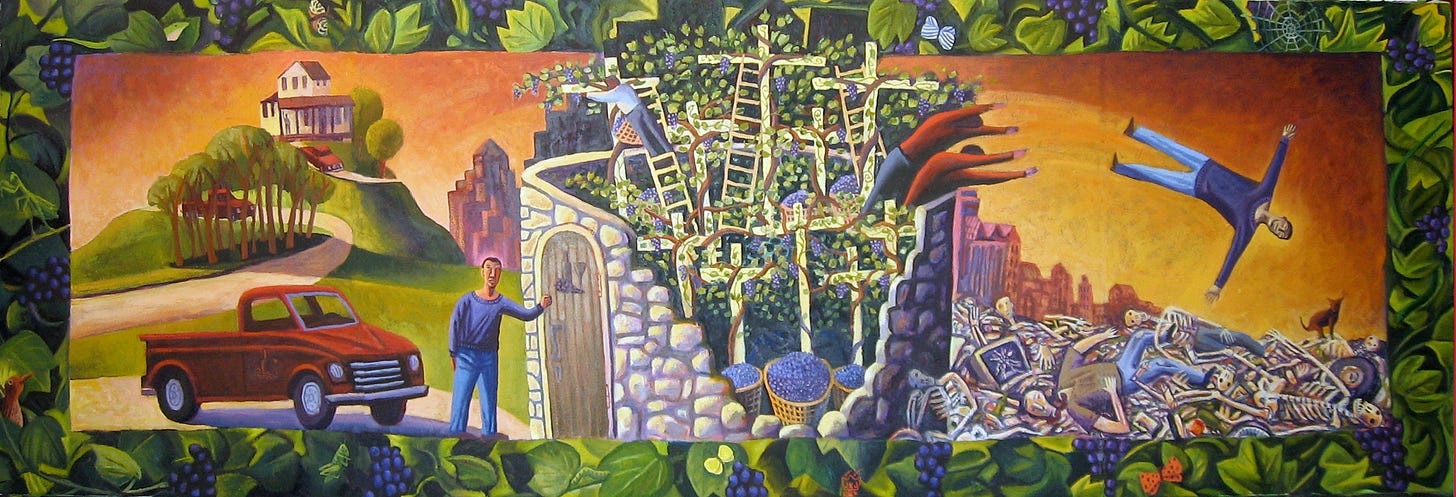Unlocking the Hidden Grace
The Vineyard Parable You Never Saw Coming 🌿✨

For the past few weeks in worship, my church has explored Jesus's tough words in his judgment parables. The puzzling stories and statements of judgment (Not always made by Jesus, mind you. Like in the Parable of the Wicked Tenants, the declaration of harsh judgment does not come from Jesus. More on that to come) leave us frustrated that the Word of God Made Flesh would have such a harsh for us. But (and you know what they say about big buts) when we dive deeper, we discover the ever-present grace of God woven into its very fabric.
The parable tells of a landowner who planted a vineyard, equipped it, and entrusted it to tenants. However, these tenants became wicked, beating, stoning, and even killing those sent to collect the fruit. When the landowner sends his own son to collect what is owed, they think they can seize his inheritance, but he, too, is met with violence. The parable concludes with the tenants being judged and replaced. Yikes!
At first glance, this parable might appear as a tale of retribution and condemnation. After all, that's the world we live in, right? But consider the grace that shines through the darkness. The landowner represents God, who graciously entrusted us with the blessings of God's vineyard – our lives, the earth, and God's love. The servants symbolize the prophets and messengers God sent to guide us. Their mistreatment and murder reveal humanity's rejection of God's guidance, yet He continues to send more, demonstrating His patience.
The ultimate expression of grace lies in the landowner sending his own son. God entered our world in the person of Jesus, becoming vulnerable to our rejection and violence. The Son's sacrifice on the cross reveals that even when we crucify grace itself, God still offers us the gift of redemption. The parable ultimately speaks of God's enduring love for humanity, even in the face of our sin.
But (and it's a big but so you know it does not lie) grace does not end with the cross. It extends to the judgment of the tenants. God's justice is an expression of His grace, for it seeks to establish righteousness and renew God's creation. It calls us to repentance, to turn away from wickedness, and to embrace God's forgiveness.
In the Parable of the Tenants, we find the tension between God's grace and justice. God's desire to see us bear fruit in our lives persists, even when it necessitates discipline. Even in the harshest parables, God's grace remains at the forefront, offering us redemption, transformation, and the hope of a fruitful life in God's vineyard.




